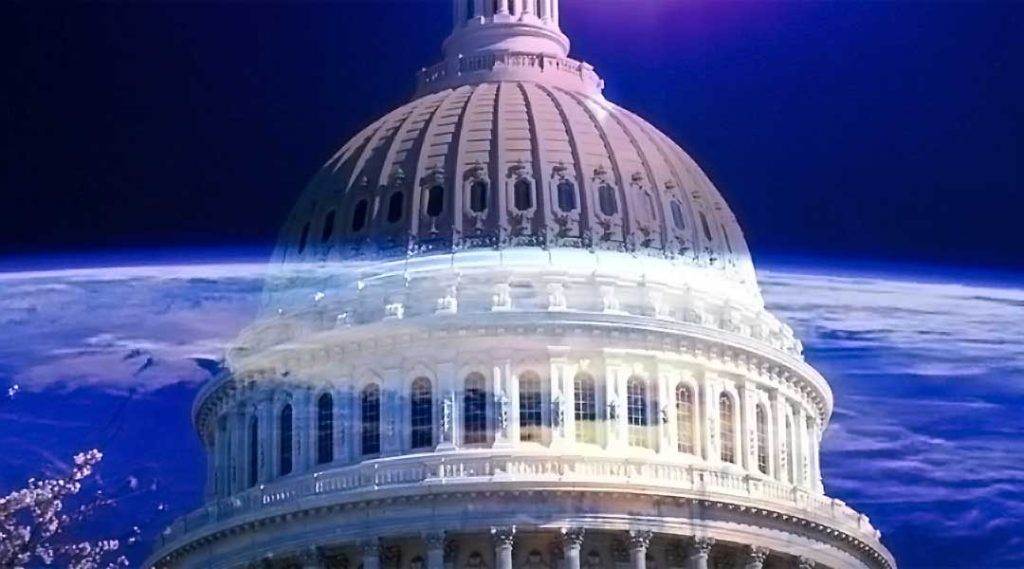The National Space Society (NSS) enthusiastically supports the Space Resources Institute Act (H.R. 1029), a bi-partisan bill submitted by Representatives Scott Tipton and Ed Perlmutter. H.R. 1029 directs NASA Administrator Jim Bridenstine to submit to Congress “a report on the merits of, and options for, establishing an institute relating to space resources, and for other purposes.” NSS looks forward to seeing a similar bill submitted to the Senate.
NSS has long called for the utilization of space resources to ensure that space exploration, development, and settlement become cost-effective and sustainable. Chair of the NSS Executive Committee Dale Skran stated, “Establishing a space resources institute to investigate potential technologies and techniques for finding, extracting, and utilizing space resources, including water, minerals, and solar energy, would be a rational next step on the way to enabling sustainable space settlement.”
H.R. 1029 outlines various resource-related roles for the Institute, such as promoting foundational science and technology; reducing technological risks; and enabling architectures, programs, and missions that otherwise would not be possible.
NSS Executive Vice President Alfred Anzaldua added, “An institute such as that called for by H.R. 1029 could become the lynch pin in a national drive to utilize the vast resources of space for the betterment of humankind, while mitigating the negative consequences of extracting finite terrestrial resources.”
Space resources hold the potential to lessen the negative impact of human development on planet Earth. There is far more water in the moons of our solar system than in all the oceans of Earth. There is are millions of times more metals and minerals available in the asteroids than here on Earth. For more information about the National Space Society’s plan for the development of space resources leading to space settlement see the 2019 Third Edition of its Roadmap to Space Settlement at: space.nss.org/roadmap.




















3 thoughts on “National Space Society Endorses the Space Resources Institute Act (H.R. 1029)”
So long as the private sector can legally access space resources, we will welcome NASA’s breaking new ground.
One interpretation of the outer space treaty is that it declares celestial bodies as being international territory. While a claim of exclusive use of a territory is forbidden by this interpretation, it holds that the resources of the territory are free to all.There is precedence in international waters and oil platforms that set a buffer zone of 500 meters to minimize conflicts between competing parties.
<>
I dislike developers. I live in key west and i see how they destroy good old stuff more than they develop better things.
I don’t like NSS jumping into this faulty logic that capitalism in space will make life there self-sustaining and cost-effective. All capitalism does is make money for capitalists.
My examples of cost-effective and self-sustaining “socialism” are the oringinal thirteen colonies of America. They used the “commonwealth” technique of coping with harsh frontier conditions and they suceeded.
“Sharing” is the way to settle a frontier and capitalism takes takes away more than it shares. Ask the poverty-level Walmart workers for proof.